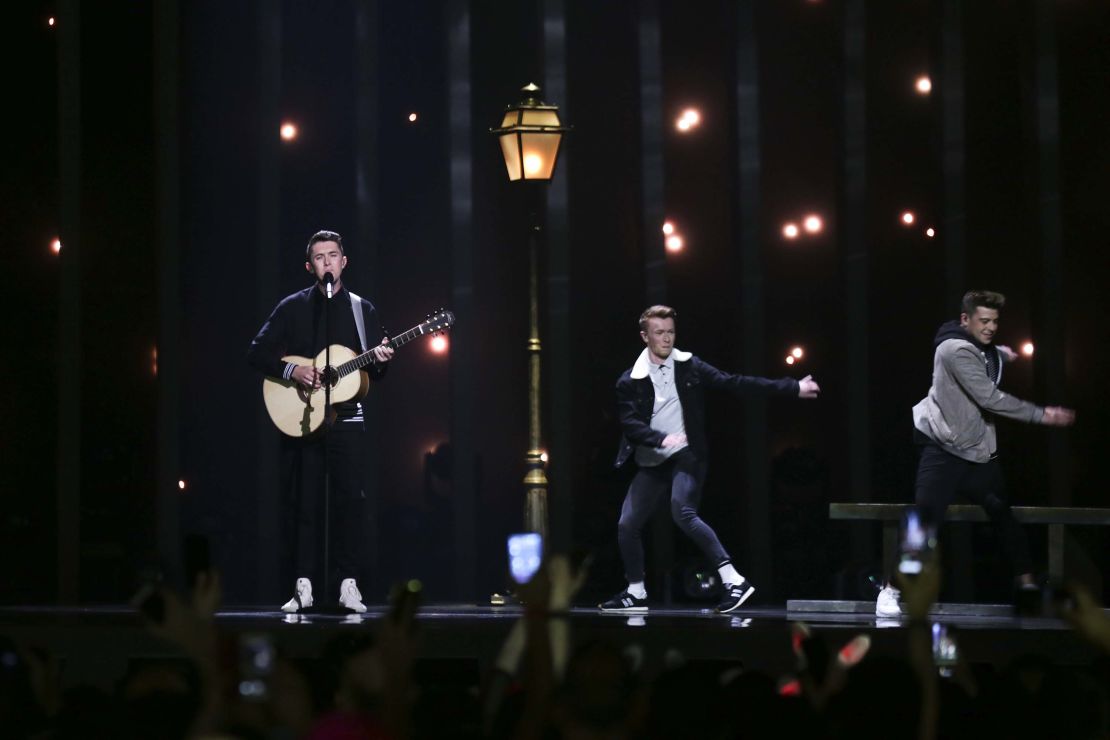Organizers of the Eurovision Song Contest, the riotously camp transcontinental music competition, have banned a Chinese TV station from broadcasting Saturday’s final after it censored an LGBT-themed performance.
The European Broadcasting Union (EBU), which organizes the contest and distributes it to broadcasters around the world, said it had taken the action after Mango TV cut two acts in the first semifinal, broadcast on Tuesday.
China’s Global Times, a state-owned tabloid, said on Friday that the two acts – Ireland and Albania – fell foul of Chinese censors because they featured an LGBT theme and tattoos.

In respons, the EBU barred Mango TV from broadcasting Thursday’s second semifinal and the final, which involves acts from 26 countries and is this year being held in Lisbon, Portugal.
“This is not in line with the EBU’s values of universality and inclusivity and our proud tradition of celebrating diversity through music,” a statement from the EBU said.
Mango TV didn’t immediately respond to a CNN request for comment.
The Irish entry, Together, sung by Ryan O’Shaughnessy, is a love song about a relationship between two men and features two male dancers, while Albania’s act involved performers with tattoos.
“A rainbow flag in the crowd, which represents the LGBT community, was also been blurred in the broadcast,” the Global Times said.
Guidelines released in China in 2016 characterized homosexuality as an “abnormal sexual behavior” unfit for Chinese television, alongside incest, sexual abuse and “perversion.”
O’Shaughnessy told the BBC he welcomed the decision. “From the very start we’ve just said love is love, doesn’t matter if it’s between two guys, two girls, or a guy and a girl,” he said.
Ireland, which holds the record for Eurovision wins but whose fortunes have waned in recent years, qualified for Saturday’s grand final, as did Albania.






